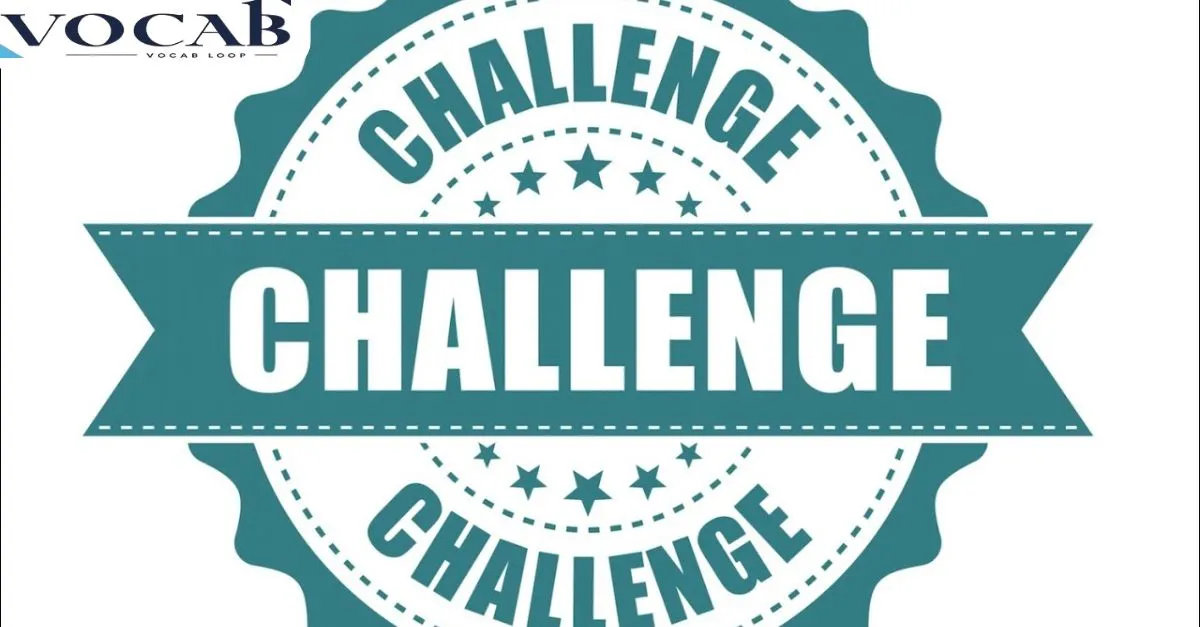The spelling confusion between “challange” and “challenge” is a frequent issue among English learners and even native speakers. While both spellings look similar, only one is correct: “challenge.” The incorrect spelling “challange” stems from pronunciation or typographical errors. Understanding the proper usage of “challenge” is essential to avoid these English typos and communicate effectively.
In this article, we will explore the differences, definitions, and correct usage of “challange” and “challenge.” By the end, you’ll know how to confidently avoid the common misspelling challenge and appreciate the proper spelling.
What Is the Confusion: Challange or Challenge?
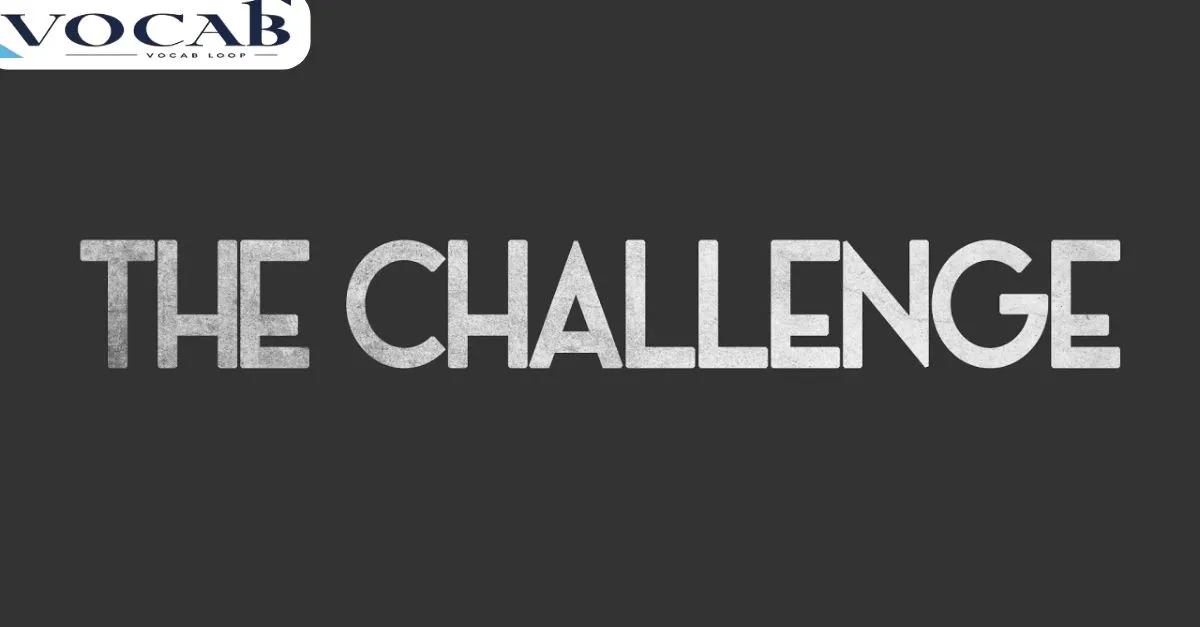
The confusion between these spellings arises from how the word is pronounced. The soft “g” sound in “challenge” often leads people to replace the “e” with an “a.” This error is particularly common in informal writing, where speed often takes precedence over accuracy.
Another reason for this confusion could be the visual similarity of the two words. Since the incorrect spelling “challange” closely resembles the correct one, many writers fail to notice the error. Recognizing this word difference is crucial to avoid spelling issues in professional or academic settings.
What Is the Challange?

Is the Challange Word Correct?
“Challange” is not a valid word in English. It is an incorrect variant of “challenge” that does not appear in reputable dictionaries. While some may use it unintentionally, relying on it can lead to misunderstandings or errors in communication.
This misspelling challenge is often the result of typing errors or a lack of familiarity with proper spelling rules. Learning to identify and correct such mistakes is a critical skill for effective communication.
Definition:
There is no official definition of “challange” because it is not a recognized word. Any usage of “challange” is a result of error rather than intent.
Meaning:
Although “challange” lacks a formal meaning, it is often mistakenly used in place of “challenge,” which signifies a task, test, or invitation to compete.
Usage:
Incorrect usage of “challange” may appear in casual writing or informal conversations. However, such errors can detract from the clarity and professionalism of your message.
What Is the Challenge?
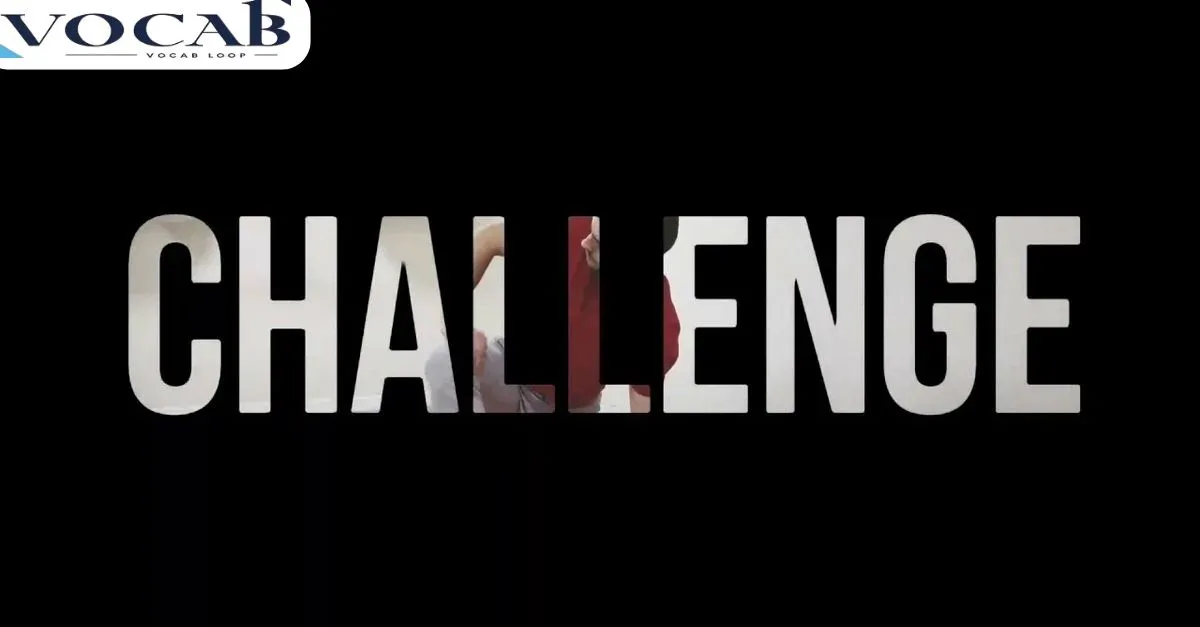
Is the Challenge Word Correct?
Yes, “challenge” is the correct spelling and is widely recognized in both British and American English. It is a standard word that serves as both a noun and a verb, depending on the context. Mastering its proper use can help you avoid misspelling tips entirely.
Definition:
The definition of challenge is “a call to take part in a contest or competition” when used as a noun and “to dispute or question something” when used as a verb.
Meaning:
The meaning of challenge often relates to overcoming difficulties, engaging in competition, or questioning the status quo. It represents an active effort to test one’s abilities or resolve.
Usage:
- As a noun: “The project was a significant challenge for the team.”
- As a verb: “She challenged the decision made by the committee.”
Quick Summary
| Aspect | Challange | Challenge |
| Correctness | Incorrect | Correct |
| Definition | Not recognized | Accepted universally |
| Meaning | None | Task, test, dispute |
| Usage | Typographical error | Common in writing/speech |
Challange or Challenge as Parts of Speech
“Challenge” can function as both a noun and a verb, while “challange” has no linguistic role. When used as a noun, “challenge” often refers to a task or test requiring effort. For example: “Winning the competition was a challenge.” As a verb, it indicates questioning or opposing something, like: “He challenged the validity of the results.”
On the other hand, “challange” has no proper application as a part of speech. Ensuring the use of “challenge” in all contexts will help maintain your writing’s clarity and professionalism.
Pronunciation of Challange or Challenge

The pronunciation of challenge is /ˈʧælɪnʤ/, featuring a soft “g” sound. This specific pronunciation often confuses writers into thinking “challange” is correct.
“Challange,” however, does not have an official pronunciation because it is a misspelling. Focusing on the correct word and its sounds is critical to overcoming spelling confusion.
Side-by-Side Comparison: Challange or Challenge
| Feature | Challange | Challenge |
| Pronunciation | Not applicable | /ˈʧælɪnʤ/ |
| Spelling Accuracy | Incorrect | Correct |
| Usage Examples | Typos or errors | Noun and verb contexts |
Which One Is More Acceptable: Challange or Challenge?
Among English speakers, “challenge” is the only acceptable spelling. While “challange” may appear in informal writing or typing mistakes, it is not accepted in formal writing or professional communication. When writing for school, work, or any context requiring accuracy, always use “challenge.” The correct spelling aligns with proper spelling rules and ensures your writing is clear and professional.
Using “challange” can hurt your credibility and make you appear careless, as it is widely recognized as a misspelling challenge. Stick with “challenge” to avoid confusion and maintain strong language standards.
Challange in British English and American English
While spelling issues like “challange” are common, both British and American English agree on the correct form: “challenge.” There are no significant spelling differences between the two dialects for this word. The correct vs incorrect distinction remains consistent, regardless of whether you are writing in the UK or the US.
it’s important to note that pronunciation can differ slightly between British and American speakers. The meaning and usage of “challenge” remain the same in both varieties of English. So, whether you are in London or New York, the proper spelling is always “challenge.”
Challenge in British English and American English
“Challenge” is used similarly in both British and American English. In British English, it can be used in contexts like sports or competitions, much like in American English. The spelling “challenge” is universally accepted and the most common usage across both regions.
Differences may arise in how “challenge” is applied in certain idiomatic phrases or colloquial expressions. For example, British speakers might say “a real challenge” in a more reserved tone, while American speakers may use it in more casual, assertive contexts. However, the word remains consistent in its definition and usage across both forms of English.
Common Mistakes: How to Avoid Them
One of the most frequent spelling issues that people encounter is confusing “challange” with “challenge.” This happens because the two words look so similar, and it’s easy to accidentally add an extra “a.”
- Break the word into two syllables: chal-lenge.
- Think of “challenging” as a verb. “Challenge” is the noun form, so they are closely linked.
- Create a mnemonic for “challenge” by remembering the “e” in the middle (think of “e” for effort or energy—something needed for a challenge).
Trick to Remember the Difference: Challange or Challenge
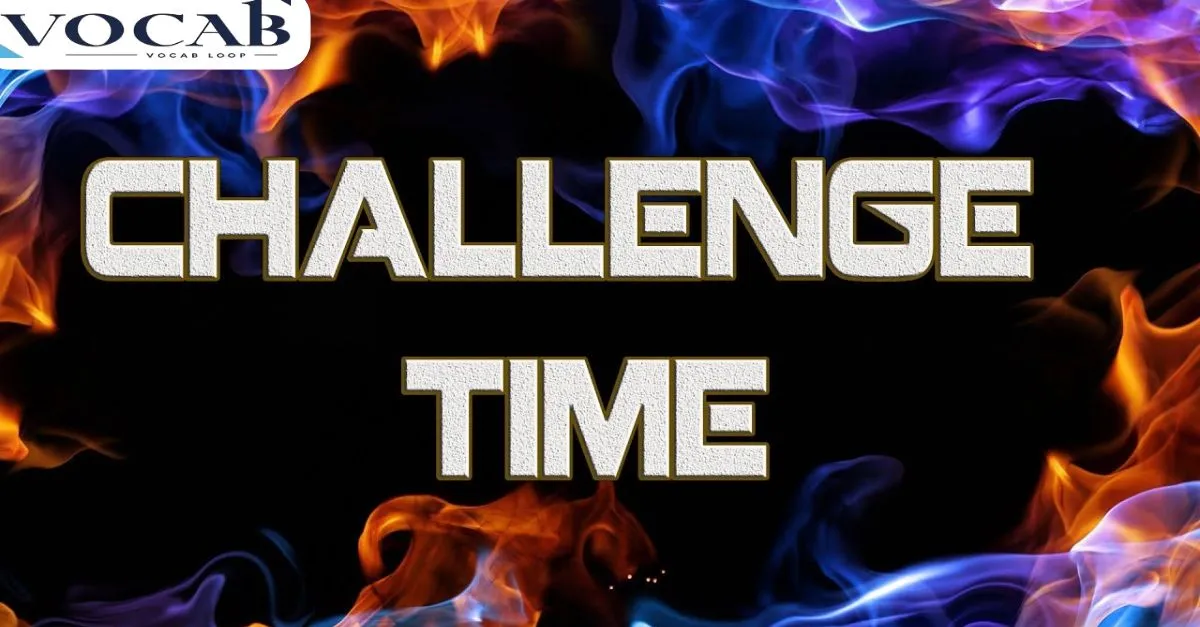
A simple mnemonic for challenge is to think of it as “challenging to get the spelling right.” The “e” in “challenge” reminds you that it requires extra focus and effort to use the correct spelling. By associating the word with the effort it takes to achieve a goal, you’ll be less likely to forget the proper spelling.
Another trick is to imagine that a challenge always requires “e”nergy—another way to reinforce the correct form. Keep this association in mind to avoid slipping into the common misspelling challenge.
Origins of Challange or Challenge
Challange:
The incorrect form “challange” has no linguistic roots because it is simply a typographical error or misinterpretation of “challenge.”
English speakers have only used “challenge” in its correct form, derived from Old French “chalenge” (which itself came from Latin “calumnia,” meaning a false accusation or claim).
Challenge:
The word “challenge” dates back to Old French and Latin, with its usage rooted in legal and competitive contexts. In modern English, “challenge” has evolved to represent not only a formal contest but also any difficult or demanding task.
The consistency of spelling across time makes “challenge” the proper spelling in all forms of English.
Synonyms of Challange or Challenge
Challange:
- Test
- Difficulty
- Obstacle
- Problem
- Trial
- Contest
- Confrontation
- Struggle
- Opponent
- Task
Challenge:
- Test
- Obstacle
- Difficulty
- Trial
- Confrontation
- Competition
- Contest
- Demand
- Struggle
- Opposition
Sentences in Daily Usage of Challange or Challenge
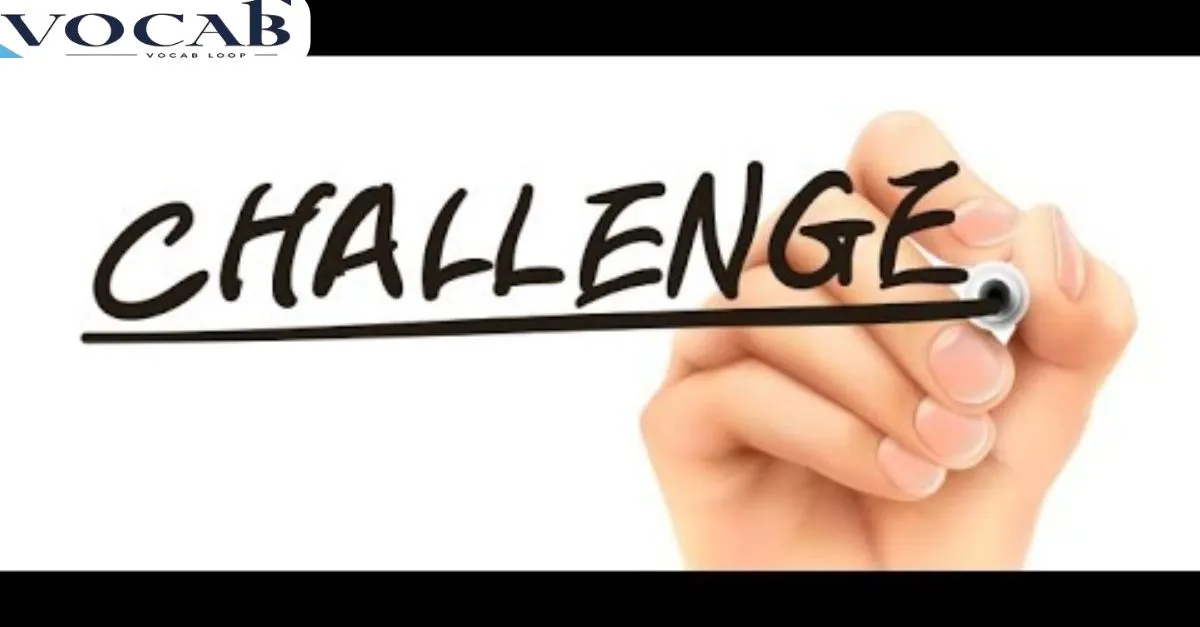
Challange:
- He made a challange to finish the race first.
- We faced a serious challange in completing the task on time.
- Her challange to the rules was quickly dismissed.
- The project posed a significant challange for the team.
- Everyone thought the challange was too difficult.
- He was trying to overcome his personal challange.
- The competition was a true challange for the participants.
- She accepted the challange of climbing the mountain.
- The challange of learning a new language can be tough.
- His challange against the ruling decision was well argued.
Challenge:
- The challenge was harder than we expected.
- They accepted the challenge and completed the task.
- She faced a big challenge in her career.
- This new project is a great challenge for me.
- Overcoming the challenge was rewarding.
- The team took on the challenge of improving sales.
- Running a marathon is a real challenge.
- The challenge of learning coding is exciting.
- The challenge to beat the record was on.
- We saw the challenge ahead but pushed forward.
FAQs
Why is there confusion between “challange” and “challenge”?
The confusion often arises due to a typographical error or misunderstanding of pronunciation. People may mistakenly spell “challenge” as “challange” due to the similar sounds.
Is “challange” ever acceptable in formal writing?
No, “challange” is never acceptable in formal writing. Always use “challenge” to maintain clarity and professionalism.
How can I quickly identify the correct spelling?
Remember that “challenge” has an “e” after the “l” instead of an “a.” This simple pattern can help you avoid spelling errors.
Are there regional preferences for spelling?
No, both British and American English use “challenge” as the correct spelling. There are no regional spelling variations for this word.
What tools can help avoid spelling errors?
Using a spelling checker or grammar tool, reading your writing aloud, and practicing common words can help you catch errors like “challange.”
Conclusion
The correct spelling challenge between “challange” and “challenge” is easily resolved. Always use “challenge” when writing or speaking. Whether you’re facing a noun example or using it as a verb, the proper spelling ensures your communication remains clear and professional.
With the right misspelling tips and a good memory aid, you can avoid these common spelling mistakes and improve your writing.

Alex Hormozi is a seasoned blogger at Vocab Loop, known for his deep insights into language, vocabulary, and grammar. With years of experience in writing, Alex shares practical tips and effective strategies to help readers improve their linguistic skills and enhance their writing abilities.

